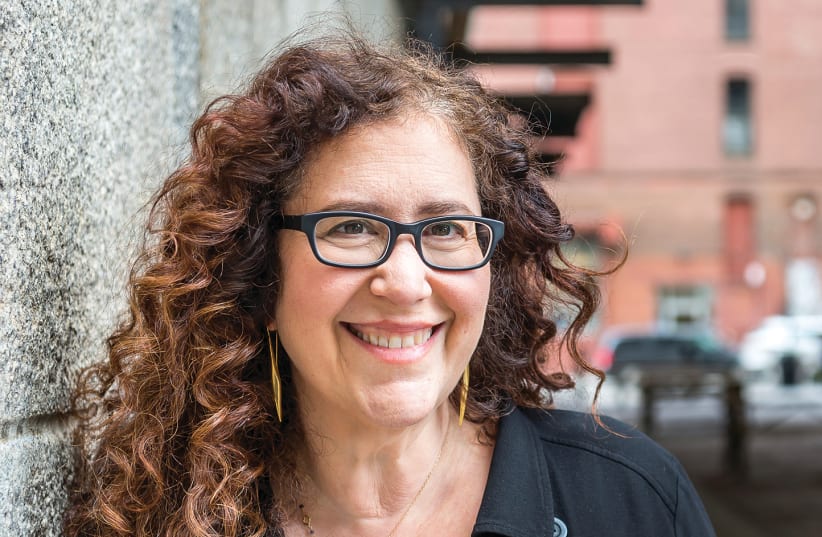Goldman has more than 100 producing and executive producing credits and has made an incredible variety of quality documentaries. In 2009, she founded the Brooklyn-based company Motto Pictures, which she runs with Chris Clements. Her two Oscar-nominated movies are Abacus: Small Enough to Jail, directed by Steve James, about the only company whose executives were criminally indicted in the 2008 financial crisis; and Roger Ross Williams’s Life, Animated, the story of how a boy with autism and his family learned to communicate by using the personas of Disney characters and their dialogue, and which is based on Ron Suskind’s book about his son.
Other highlights of her distinguished career include such buzzed-about and sometimes controversial films as Nanfu Wang and Jialing Zhang’s One Child Nation, about how China’s one-child policy shaped the country; Weiner, an intimate look at the disgraced politician Anthony Weiner’s mayoral run, by Josh Kriegman and Elyse Steinberg; Ivy Meeropol’s Bully. Coward. Victim. The Story of Roy Cohn; Love, Gilda, a look at the too-short life of the beloved comedian, by Lisa D’Apolito; Devil’s Playground by Lucy Walker, which tells the story of Amish teens who are sent out to experience all the world’s perils and pleasures before they settle down in their own community; and the wildly inventive “film noir” documentary The Mole Agent by Maite Alberdi, about an elderly man hired by a detective to spy on the residents of a Chilean nursing home to document abuse there.
And there are still over 90 titles left.
While a lot of people claim they are interested in having a varied career but end up playing it safe and staying in a familiar lane, Goldman truly does not want to repeat herself.
“I feel really strongly that I don’t want to do the same thing again. Because to me the joy of what I do is I get to go into a world and learn a lot about it.... If we do a film on a particular subject, a lot of times, we get pitched several more films on that subject and it makes it clear to me that that’s not what I want to do.... Those could be great films but I feel very clear that we’ve covered what we want to cover here,” she said. “I love to keep the subjects very diverse, it keeps my interest level high.”
At times, particularly with television movies or projects for streaming services, she will consider making a sequel, although more often “it turns into an anthology.”
She grew up on the Upper West Side enjoying classic old movies and, after studying filmmaking at Brooklyn College she produced music videos and commercials, along with one dramatic feature film (with Clements), as well as some documentaries.
“I found that the documentaries were what was drawing me in, those other genres were absolutely less appealing.”
SHE FEELS that, at times, producers have not gotten the respect they deserve for being a key part of the filmmaking team.
“Especially with documentaries, you are hand in hand, for years and years, you’re a filmmaking team, you’re making the film together and then you finish the film and it goes to a festival and sometimes the producer is not invited the festival and you have to pay for yourself, which is often the case. It used to be they didn’t want the producer to come up for Q & As, but it’s shifted.... There’s a movement now to recognize producers and that relationship and that contribution,” she said, noting that a producer may even work on a project longer than the director.
“For us, we’re very much creative producers and we’re creative executive producers. We are involved in the project from writing about it at the very beginning and creating the initial materials to pitch and all the way through, from all sides.”
While people may think of producers as the people who raise the money and make the deals, that is only a part of the producer’s job, she said. They are often there when the film is being shot and watch the dailies, the film shot each day, and are in the editing room with the director, she said.
Documentaries are a strong genre today, partly due to the streaming services, such as Netflix, “which have opened documentaries up to a lot of people.” A documentary that might not get a theatrical release can get millions of viewers on Netflix, she noted.
Goldman has been coping with many challenges due to the pandemic and had hoped “this was all behind us, but it isn’t yet.” Still, she and her team managed to keep working even at the height of the pandemic, at times filming interviews on Zoom, and she has several new documentaries coming out.
She is excited about the first documentary by Todd Haynes – the director known for such dramas as Carol, Far From Heaven and I’m Not There – and who made The Velvet Underground, about that legendary band, which will premiere at the Cannes Film Festival this month and will also be shown on Apple TV+. It features interviews with Lou Reed, John Cale and many others who were part of the scene, as well as some never-before-seen concert footage.
Another recent film Goldman produced, In the Same Breath by Nanfu Wang, an HBO film that is in the International Competition at Docaviv, tells the complex and very surprising story of how the Chinese government turned the cover-up of the pandemic’s spread in Wuhan into a political win. The film won the Audience Award at the SXSW Film Festival in the US.
As the pandemic continues to affect filmmaking and festivals, she said, “Although lately I’m not so sure about the future of movie theaters, I am very optimistic about the future of documentaries.”
